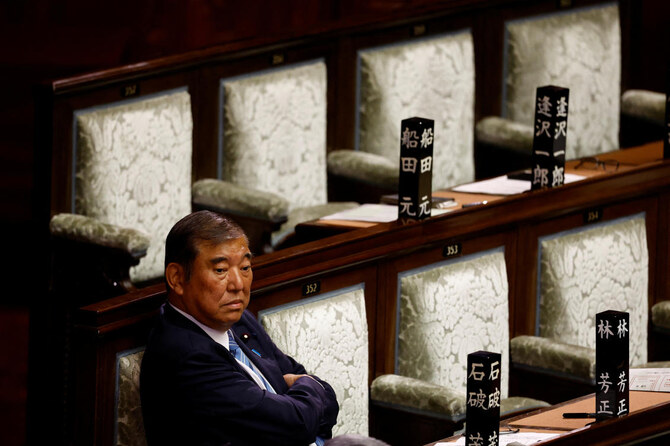Ishiba’s Election Setback: A Struggle for Political Stability
The Election Outcome
On October 27, Japan’s Lower House of Parliament saw a historic election loss. Prime Minister Shigeru Ishiba’s Liberal Democratic Party (LDP), along with its junior partner Komeito, lost their majority in the 465-seat chamber. This marked the worst election defeat for the ruling coalition in over a decade. Voters’ anger over financial scandals and the LDP’s weak response led to the result.
A special parliamentary session convened to elect a new prime minister. In the first runoff in 30 years, Ishiba defeated opposition leader Yoshihiko Noda 221-160.
A Cabinet Shake-Up and Political Instability
Ishiba refused to step down after the loss. He expressed his willingness to work with additional coalition partners to secure political stability. Most of his Cabinet members will remain, but three will be replaced due to the election results.
Ishiba now faces significant challenges. He must gain consent from opposition parties on key policies, including the national budget and other important legislation.

The Rise of Opposition
Opposition parties, bolstered by the election results, now seek to challenge Ishiba’s government. Yoshihiko Noda, head of the Constitutional Democratic Party of Japan (CDP), aims to form an opposition coalition. However, his efforts have yet to succeed. A rising political force, the Democratic Party for the People (DPP), saw its seats quadruple in the election. Under the leadership of Yuichiro Tamaki, the DPP proposed progressive policies, such as raising tax-free income allowances and boosting wages for low-income earners.
Tamaki’s ideas resonated with young and low-income voters. However, he has refused to join Ishiba’s coalition. Tamaki prefers to use his party’s leverage to increase their standing ahead of the next election.
The Road Ahead for Ishiba
As Ishiba prepares for key international summits with ASEAN, the Group of 20, and a possible meeting with US President-elect Donald Trump, his political situation at home remains uncertain. The coming months will test his ability to manage his coalition and address growing opposition. Ishiba’s leadership will depend on his success in navigating these challenges.
Our Visitor






 Users Today : 126
Users Today : 126


